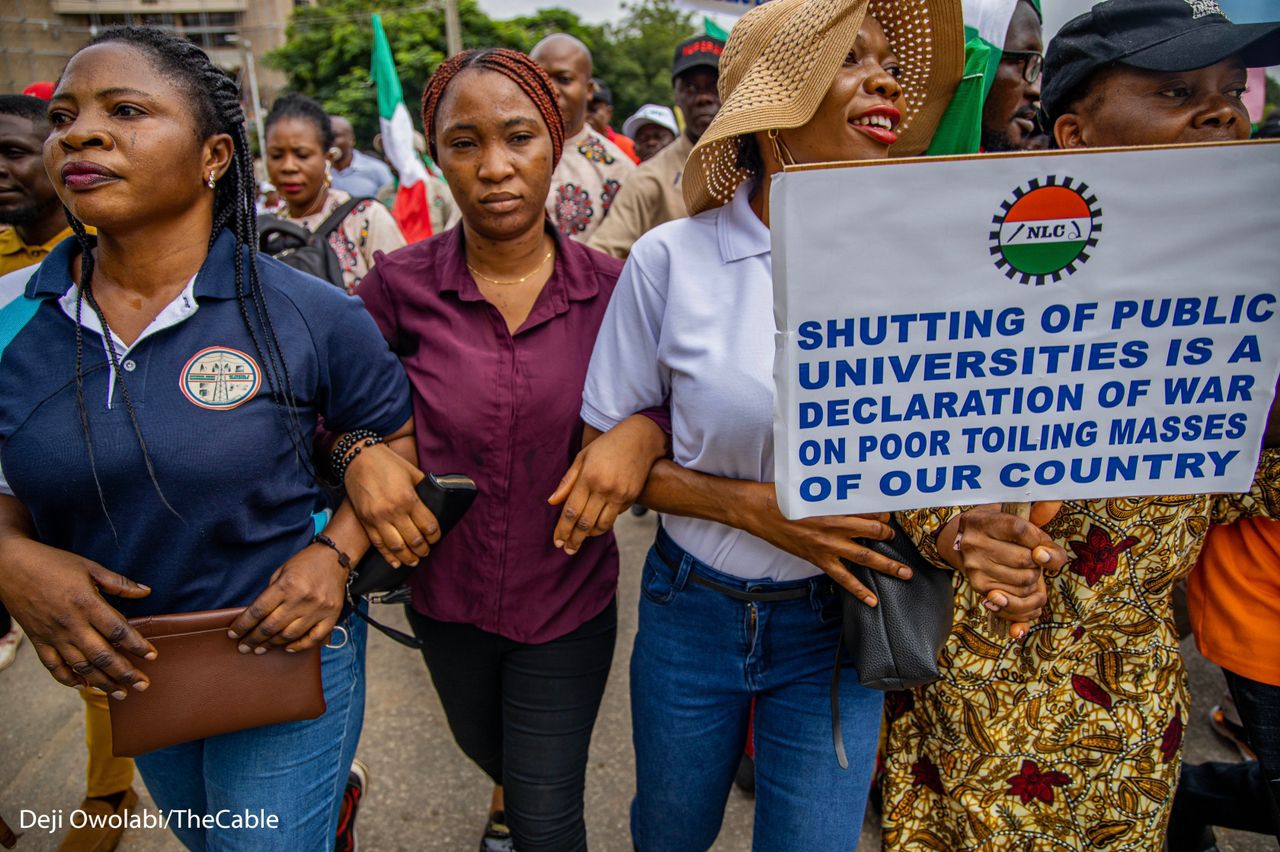Having been very fortunate at a point in life to be a pioneer staff in birthing the Research and Development Department of a major parastatal, with a brief to work closely with tertiary institutions and fund their research works that could foster major developments and innovation in the tech sector, I saw first hand the deplorable state and helplessness of some of our universities.
I do not want to talk of understaffing, which was prevalent. I do not want to talk of the physical infrastructure, which was in a sorry state in nearly all the institutions visited. Each environment painted the metaphor of gloom, especially if you were fortunate to attend a Nigerian university in the 80s, when some of us had a real good time. And we thought we were suffering!
In the midst of such dinginess our young ones looked happy, always very excited in trying to prove a point. Some did and really earned my respect. The lecturers, may God reward them for their steadfastness and resilience for developing the thick skin to work in, sometimes, extremely unpleasant environments.
A friend who heard my story alerted me that the secondary schools were not any better, and that it was indeed a miracle that they could still provide candidates for the tertiary institutions. Stories from my alma mater and one other school where I had taught for two years before heading to the university, were enough to depress me – schools not having teachers and communities having to fund the provision of contract teachers or the enrolment figures of students really plunging to a depressing low. Since then it has been every man for himself, people coming together to scrounge for funds in order to facilitate some activities in these institutions.
Advertisement
I was really, therefore, quite excited when I chanced on materials on a multimillion dollar partnership between Airtel Africa and UNICEF to scale up education across the continent. A page out of the Airtel Africa Sustainability Planreveals that between 2021 and 2027, the organisation will spend $57m to spark digital learning across the continent. In Nigeria alone over 10,000 students are expected to benefit, from Lagos to Kano, and beyond. Twelve other countries will benefit from this windfall.
A little drop in the ocean? No! Don’t be unkind to a good heart. The education sector in Nigeria is in serious crisis. Nothing exemplifies this better than the universities that have been shut for nearly six months. The strike counters say that an academic year has been lost. But it is more than that – the health of the students, the loss to the nation in terms of their contributions to socio-economic growth and the rot of disused infrastructure that are already in a very bad state. Airtel comes with a breather to a sector in desperate need of help. Although this comes at the junior level, I want to admit here that I fully subscribe to the aphorism, catch them young.
A statement in the company’s website credits Airtel Africa, a leading provider of telecommunications and mobile money services in the continent, as the first African private sector partner to make a multimillion-dollar commitment to ‘Reimagine Education’, a global initiative launched by UNICEF in 2020, calling for public and private sector investment in digital learning as an essential service for every child and young person across the globe.
Advertisement
Pursuing a continental corporate social responsibility programme to give some disadvantaged African children quality education that will prepare them for life’s competition and struggles, Airtel pulled out the United Nations Sustainable Development Goal 4 (SDG4) which, in brief, states as follows: Ensuring lifelong learning opportunities for all, from early childhood to adult education; Ensuring equity, inclusion and gender equality; Ensuring effective learning and the acquisition of relevant knowledge, skills and competencies; and Ensuring the relevance of learning, in terms of vocational and technical skills for decent work as well as for global citizenship in a plural and interconnected world.
Chief Executive Officer, Airtel Africa, Mr Olusegun Ogunsanya, says Airtel Africa is a business that is driven by the purpose to transform lives. “Our goal is to transform the lives of over one million children through education by 2027. We will achieve this through programmes and partnerships to connect schools to the internet, provide access to quality learning content and support the schools most in need,” Airtel stated in the document as an education goal.
UNICEF estimates that by 2055, Africa will be home to one billion children under the age of 18, making Africa’s child population larger than any other continent. While in most parts of the world a large number of this demographic can drive economic growth and transformation, the case of Africa where youth unemployment rates are between 54 and 70 per cent, is unfortunately not so.
Added to the above is the World Bank’s ‘learning poverty rate’ – the inability to read or understand a simple text by the age of 10, in sub-Saharan Africa, which stands at nearly 87 per cent, a situation that has obviously been compounded by COVID-19 pandemic which nearly saw 90 per cent of learners across Airtel African market drop out of formal education.
Advertisement
Airtel says the situation is critical and must be addressed immediately to ensure that by 2030, 288 million people will not reach the age of 18 without basic proficiency levels in reading. The organisation is addressing this exploding problem through three focus areas, namely: Partnerships, Connectivity for education, ‘Adopt a School’ programme. “Where network services exist, we will work with schools to ensure they have the equipment necessary to connect to the internet,” Airtel says.
“Digital learning is the gateway to equipping young people with the right skills – skills that will support them to transition from learning to earning. We are delighted that Airtel Nigeria shares in this vision, and is helping to drive the process of scaling up internet connectivity for school children in Nigeria,” said Peter Hawkins, UNICEF Nigeria Representative.
Formal education in Nigeria is facing overwhelming challenges. Insecurity is buffeting nearly all the zones of the country and in particular zones, education has been portrayed as haram, making it something forbidden. For this wrong headed appropriation of ignorance apropos modern education, a large number of children have been driven out of school.
It is difficult to state who is doing more harm to education – Boko Haram (western education is forbidden) or the politician. The position of the former is well known but the politicians, in spite of their manifest avowal for quality education, a majority build classes, where they build at all, without chairs and teachers. What you see from the outside is a beautiful building without anything inside, a complete shell, like a body without a soul.
Advertisement
The future of Nigeria’s children hangs on a perilous balance. While I want to formally thank Airtel for going above business to give a digital nod to the African child, I want to observe that the education sector in the country deserves a declaration of a state of emergency. University students have been at home for months while the politicians are campaigning for another term in office. In some parts of the North, education is not happening at all. And at the Federal Capital Territory (FCT), schools have to be short hurriedly as part of the security measures to prevent attacks. How low can this country really sink?
This nation needs the support of development partners to rejuvenate the education sector. And this is urgent. Those whose future was lubricated by the wealth of the nation should not lacerate the future of Nigerian children and youths with their fossilised reasoning and clueless approach to setting development goals for a world beyond the precincts of circumscribed imaginations. It is strength of character to admit failure and recalibrate for a better future.
Advertisement
As a reliable development partner, Airtel has pledged to lift the Nigerian child from digital slum with a large financial vote. Other corporate bodies should be encouraged to throw in their little bit.
Advertisement
Views expressed by contributors are strictly personal and not of TheCable.
Add a comment







